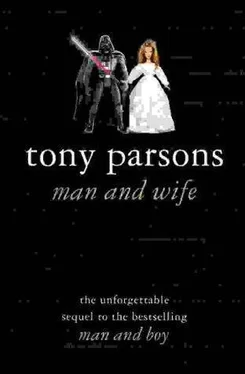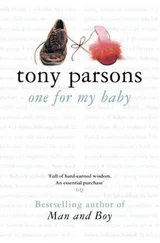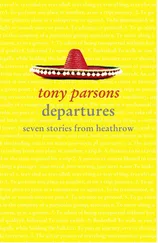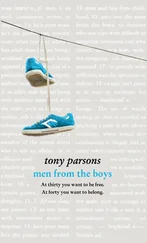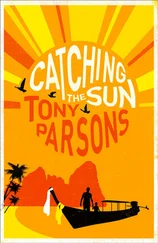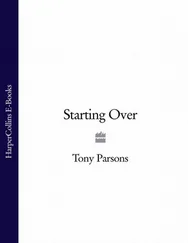’You seem to know a lot about sex with a married man, Kazumi. How come you’re such an expert?’ ’Doesn’t matter.’ ’I want to know.’ ’Not me. Friend.’ ’A friend. Sure.’ ’Really.’
’So who was this secret friend? Someone here?’
’No. Japan. A close friend in Japan.’
And then the yen finally dropped.
’What was her name, this friend with the married man?’
On the other side of the wall, the sound of a cello pouring out a kind of stately melancholy. ’Song Without Words’ again. The exam must be soon.
’Gina,’ Kazumi said. ’My friend’s name was Gina.’
My doctor thought that I had something called White Coat Syndrome.
’You see a doctor’ – she smiled, her adorable Italian accent adding unexpected vowels to the ends of nouns – ’and your blood pressure goes through the roof-a. ’
She was sort of right. When I first entered her surgery, my systolic pressure was usually around 180 and my diastolic pressure around 95. My doctor made me lie down for ten or fifteen minutes, then took another reading. This was always a vast improvement – around 150 over 90. That was not great, but it meant I was unlikely to have a stroke any time soon. White Coat Syndrome. Well, maybe. I knew it had something to do with my heart. But what my doctor never factored into her diagnosis was that I came to her surgery from home. So when she took my blood pressure, at least part of it was a judgement on my life with my wife – that bleak, stagnated life of separate beds, blended families and an ex-husband who was getting married next week. Of course my blood pressure was sky high. Where else would it be?
When I lay there on the couch for a while, listening to the distant traffic rumble down Harley Street, my mind drifted away to the happier part of my life. The first reading was my life with Cyd. And the second reading was my other life, my secret life, my life with Kazumi.
I knew her now. She was not just a pretty young woman who had caught my eye. I knew about her childhood, the salary man father who drank himself senseless after work, the mother who gave up her dreams of travelling the world for a man who didn’t love her. I knew about Kazumi’s broken marriage, and the courage it took to come to London to start again, and I knew how her face, often seriously dreaming, lost in her thoughts, could suddenly light up with happiness, light up totally without warning, like the old-fashioned lamps on Primrose Hill.
I knew it wasn’t the same as building a real life with someone. It wasn’t the same as dealing with the grind of all the things that can break down – washing machines, boilers, cars, families, marriages – but she was still the sweetest thing in my world, and that was real too, more real than anything. We talked to each other, Kazumi and I. We talked about everything. Apart from my wife, of course. We never talked about her.
’We need to be more aggressive in treating you,’ said my doctor.
She adjusted my prescription. Instead of taking 40 mg of Zestril once a day, I would now take 20 mg of Zestril and 20 mg of Zestoretic.
But in my heart – my mad, pumping, lovesick heart – I felt that for what ailed me now, pills would never be enough.
How many girls and women had I taken home to meet my mum?
It was not every girl I ever took to the pictures, and not every woman I ever took to bed. But, what with the teenage girlfriends and the two wives, we must have been in double figures by now. And as Kazumi and I drove deeper into the suburbs, the urban sprawl finally giving way to the fields of summer, I realised the criteria for bringing a woman to meet my mum had always been the same – this one, this special one, would be the last girl that I ever brought home. Why do we place so much importance on the first? It’s the last one that counts.
At this time in her life, I would like to have spared my mum my latest domestic upheaval. But there was no point in telling her that Kazumi was just a friend.
My mum knew that for a man whose marriage was in trouble, there was no such thing.
The old house on a Sunday afternoon.
Pat let us in, smiling at Kazumi, not quite able to work out what she was doing here. In the living room my mum was i sitting on the carpet, rotating her shoulders with a look of quiet; concentration on her face. She got up, a little embarrassed to be discovered like this, but kissed Kazumi as if she had known her forever. i
’Hello, love, just doing my exercises.’
My mother had been through hell, and she acted as if it had been a stroll in the park.
After surgery and radiotherapy, the muscles in her right arm were stiff and tight. She had exercises to control the pain, and different exercises to regain the use of her right arm. She did these exercises with a good grace, never complaining, and I knew now that she was actually tougher than all of us men in her life.
’Two years I have to do them for, sweetheart,’ she told Kazumi. My mum only needed to know you for five seconds before she started calling you love, darling and sweetheart. ’That’s what they told me.’
Kazumi, Pat and I watched my mum run through her exercise programme for our benefit. She demonstrated Shoulder Circling. Hair Brushing. Assisted Lift. Back Scratching. Bent Arm. Proudly tossing out the names of her exercises the way she had once mentioned the Walkin’ Wazi, the Lost in Austin and the Four-Star Boogie.
And I knew that these exercises were the least of it. She would not put this thing behind her with a bit of stretching. Even after the monstrous surgery that was necessary to save her life, she would never really be over this thing. The monitoring, the exercises, the drugs, fear that the cancer would come back
– it was all measured in years.
My mum got pins and needles in her arm, an agonising pain in her chest. And as we had our tea and biscuits, I noticed that she had developed this habit of examining her hand.
Some of the lymph nodes under her arm had been removed, and my mum had been told that this could cause lymphoedema
– a build-up of fluid in the tissues of her arm. She had been told to watch out for swelling on the affected side, her right side, and she watched all the time. Perhaps she would always watch now. Every few minutes or so, she examined her hand, looking for signs of the beginning of the end.
Chemotherapy had left her feeling as though she had the worst hangover in the world, a hangover that would not get better. Mercifully her hair did not fall out. Radiotherapy left her tired and sore, feeling like she had fallen asleep in a burning sun. She laughed about things that would have grown men me, for example – weeping in a darkened room.
’I was looking forward to my hair falling out,’ she said, smiling mischievously. ’I could have worn my Dolly Parton wig.’
Pat laughed appreciatively. He didn’t understand too much of this, even though my mum and I had both pored over every word in the leaflet Talking with Your Children about Breast Cancer. (If you are able to talk honestly and openly with your family at each step, you will hopefully find that families can be a great source °f love and support^) But he knew the signals that indicated a joke was being made – the breezy tilt in the voice, the raised eyebrows, the rolled eyes – and he was always delighted to respond enthusiastically.
I found it much harder to smile, because I knew my son would be fully grown before we could say this thing inside my mother was truly beaten. Years and years, it would all take years. The best that could happen would take years. The worst that could happen would be there in a moment.
There were 20 mg of Tamoxifen, a hormone treatment, every day, which made my mum feel like she was having another menopause. She would take it for five years. After two years, perhaps she would no longer have to do exercises. Perhaps. See what the doctors say. Have to wait and see.
Читать дальше
Конец ознакомительного отрывка
Купить книгу
